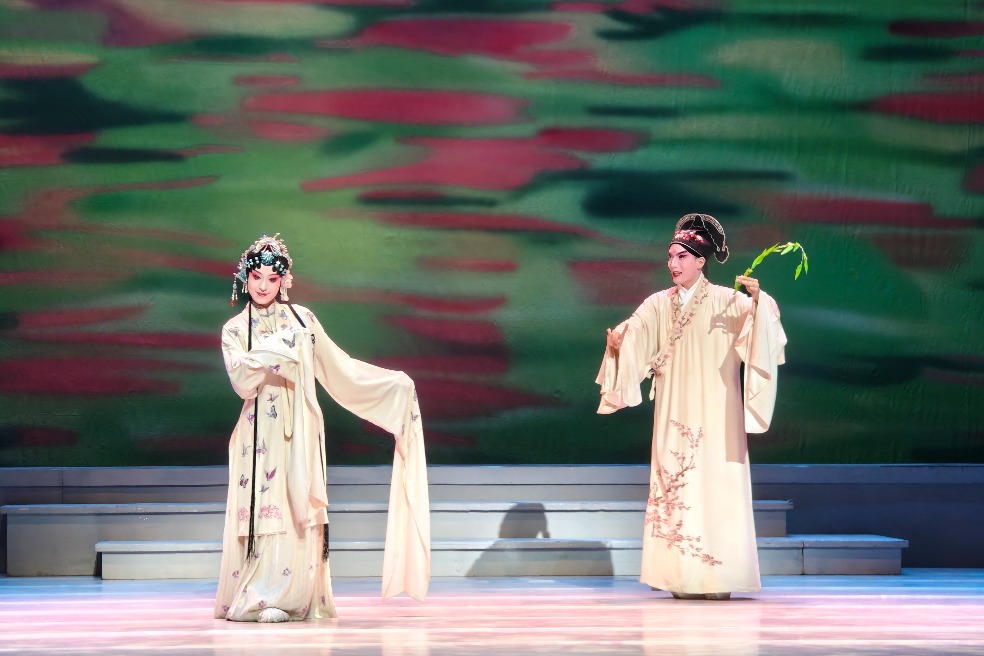Reporter feels lucky to be covering very special two sessions

As a reporter who has covered the two sessions for eight years, I could hardly imagine how this year's meetings could be organized, given the large number of people getting together and the epidemic control requirements.
Instead of going to the Great Hall of the People to attend full meetings of the two sessions, as I usually did in past years, this year I could only stay in a hotel with some national political advisers. But I'm lucky, because only a few reporters are granted such access, and I happen to be together with advisers from the economic sector.
As usual, the advisers are busy holding group discussions on key reports and making proposals on issues they are concerned about. In addition, they are giving some online interviews for the public during meeting intervals.
Due to epidemic control requirements, they have been advised not to leave the hotel, as have reporters. Therefore, a small yard in the hotel, which allows us to take a 400-meter walk after dinner for exercise, has provided an opportunity for me to encounter some big figures.
It is also a special way to share views. I participated in several conversations while walking with the advisers on topics that focused on the impact of the unprecedented COVID-19 pandemic.
Cai Jinchai, executive president of Fujian Panpan Foods and also a member of the Chinese People's Political Consultative Conference National Committee, said his factories in Fujian province have almost fully resumed production now after an extended holiday since the Chinese Lunar New Year.
"My factories, severely hit by the epidemic, suffered losses in January and February," he said. "We had no workers, no orders, and I really didn't know what to do at that time."
On Feb 10, Cai received permission to reopen the factories, but 80 percent of the workers were still in other places. Cai bought plane tickets for workers who were at home in Guizhou and Yunnan provinces, which had reported fewer COVID-19 cases, and rented cars that they could use once they arrived to get back to work. He also recruited about 200 new workers to resume production.
"To make up for the loss, we have to produce more and faster. There is no other way," Cai said. With various combined measures, production at his factories had increased by 16 percent by the end of April compared with a year earlier.
I also got the chance to walk and talk with political advisers from different sectors, including high-level officials, respected scholars and businesspeople. A reporter is lucky to have the privilege of covering the two sessions, particularly this year when China's economy is facing great pressure after experiencing a recession in the first quarter due to the epidemic.
Some shared their opinions on boosting the economy, and some worried about the virus' impact on the environment. But no matter how disruptive the pandemic has been, people are moving on, trying to adapt to a new way of life.
"If you cannot run a marathon outside, you can try to run 400 laps in this yard," an adviser said to me when I saw him jogging in the yard.
It surely will be the most special two sessions that I have ever experienced. Many things may change due to the novel coronavirus, but I believe people can always find solutions.
- Tongji University's Wu Jiang assumes presidency of architects' Asia council
- PLA carries out drone training operations near Dongsha Islands
- PLA monitors US naval vessels transiting the Taiwan Strait
- Losar warmth in a new home
- New carrier rocket built by Beijing company fails in maiden flight
- Toxic gas leak in Anhui classified as major work safety liability accident




































